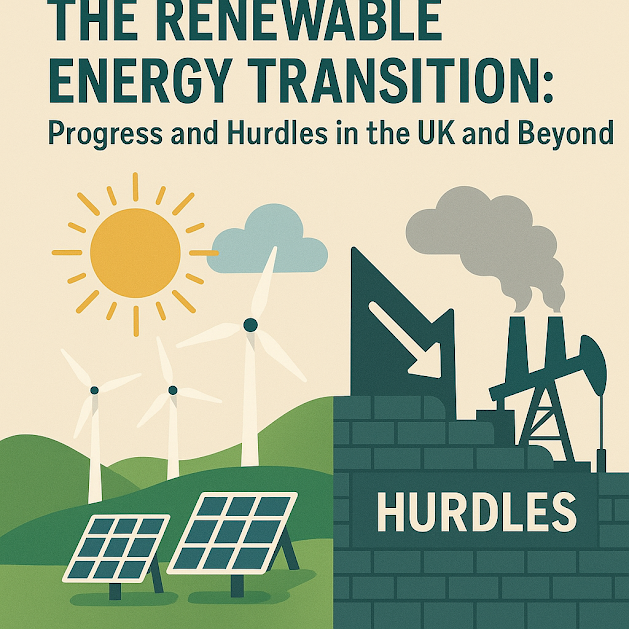The UK’s Renewable Balancing Act: Gridlocks, Green Gains, and What Comes Next
The UK’s push toward renewable energy is accelerating, but the route to net-zero is lined with bottlenecks, debates, and trade-offs. With wind and solar now generating over 40% of the UK’s electricity, the ambition is clear. Yet realising that ambition requires more than clean energy sources — it demands political resolve, robust infrastructure, and strategic balance.
By Stuart Kerr, Technology Correspondent
Published: 1 July 2024
Last Updated: 28 July 2024
Contact: [email protected] | Twitter: @LiveAIWire
Author Bio: About Stuart Kerr
Wind and Solar: Powering a New Era
Wind power is the UK’s headline act. With projects like Hornsea 3 set to power over 3 million homes, the country continues to lead in offshore generation. Dr Emma Woodward of the Carbon Trust notes that shallow waters and steady wind give the UK a natural edge, but this advantage is fragile. Rising costs have already hit the sector hard. In July 2023, Vattenfall cancelled its Norfolk Boreas project due to a staggering 40% spike in construction costs (The Guardian).
Solar tells a different story. While the UK has installed over 15 GW of capacity, much of it comes from large-scale solar farms. Critics argue that rooftops remain an untapped resource. Dr Ben Sovacool of the University of Sussex suggests policy incentives are too heavily skewed toward utility-scale solar, leaving household and community adoption behind.
Outdated Infrastructure
The greatest hurdle may be the grid itself. Originally built to serve centralised fossil fuel plants, the UK’s electricity network now faces the complex task of balancing decentralised and intermittent supply. National Grid proposes to invest over £58 billion in upgrades by the mid-2030s, as outlined by Reuters.
These delays have a measurable cost. Britain wasted nearly £1 billion in clean energy curtailment in 2023 alone — electricity that could have powered homes but had nowhere to go.
A 2024 UK Parliament report confirms that permitting delays and local opposition are slowing transmission development. Juliet Phillips of E3G adds that "without urgent grid reform, we'll waste clean energy not due to technology, but because we can't move it."
Storage: The Critical Missing Link
Alongside infrastructure, storage remains a fragile component. While battery technology has improved rapidly, long-duration solutions are still in their infancy. The Royal Society warns that the UK will need to scale beyond lithium-ion to technologies like flow batteries, compressed air, or hydrogen storage if it hopes to weather multi-day lulls in generation.
This echoes concerns raised in Invisible Infrastructure, where the gap between clean energy ambition and backend readiness remains one of the sector's most under-discussed dilemmas.
Pacing the Transition
Not all experts support rapid decarbonisation. Professor Dieter Helm of Oxford University argues that an over-reliance on renewables without supporting baseload sources like nuclear or carbon-captured gas could undermine energy security. This mirrors concerns in The Automation Divide, where hasty transitions risk leaving vulnerable sectors and workers behind.
Floating wind farms and green hydrogen pilots offer some hope. Scotland’s Pentland Floating Wind Farm and the HyGreen Teesside project backed by BP promise breakthroughs in deeper offshore capacity and clean fuel generation. But these are still in early development.
Conclusion: Gridlocked but Not Stalled
The UK’s renewable energy future is not in doubt — but its timeline and trajectory remain uncertain. The next decade will test the nation’s ability to coordinate policy, innovation, and public trust. As explored in The Renewable Energy Transition, AI and predictive analytics may offer a critical edge in grid efficiency. But without faster infrastructure upgrades and diversified investment, the energy transition could stumble at the very moment it needs to accelerate.
About the Author
Stuart Kerr is the Technology Correspondent for LiveAIWire. He writes about artificial intelligence, ethics, and how technology is reshaping everyday life. Read more

